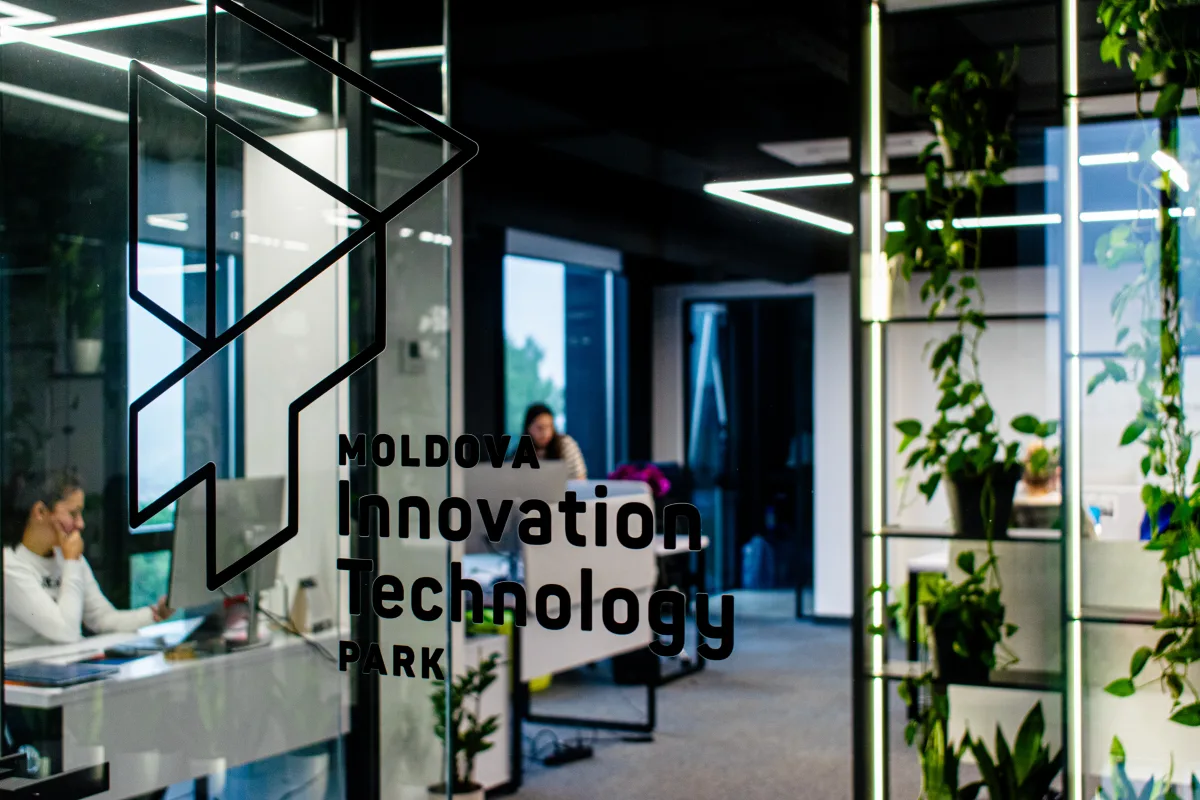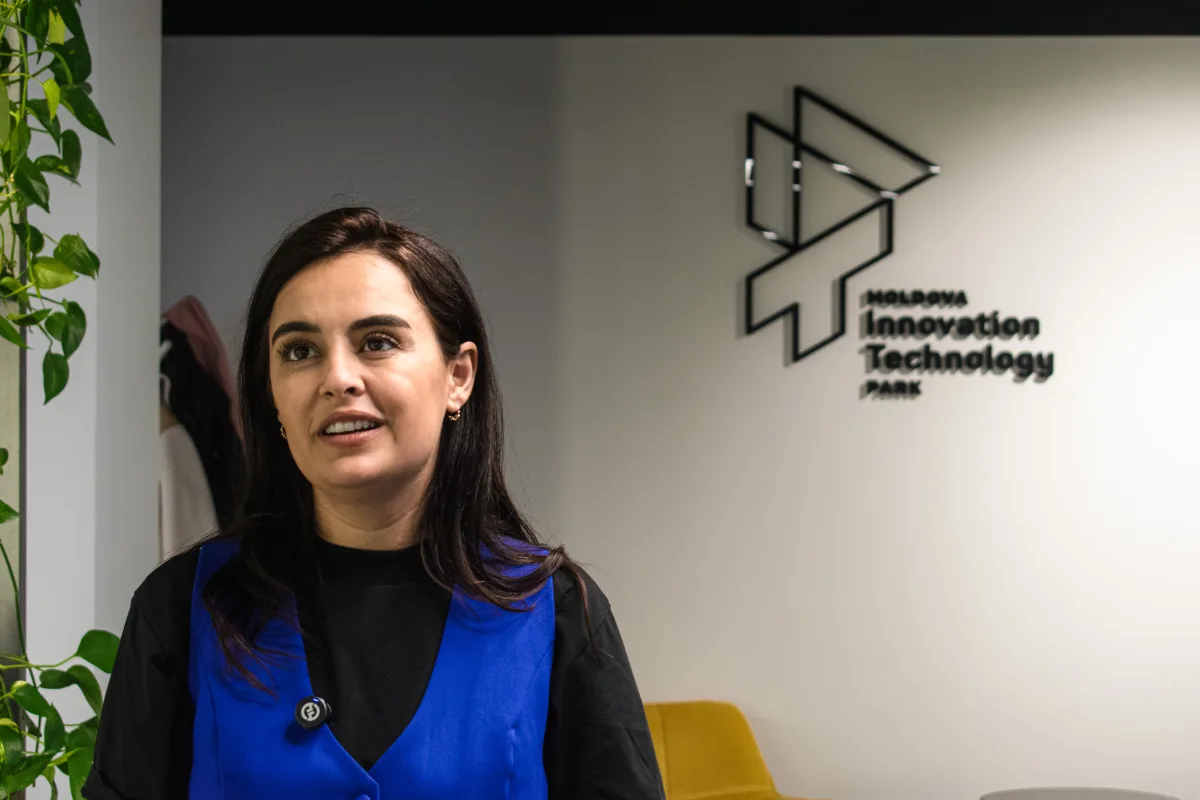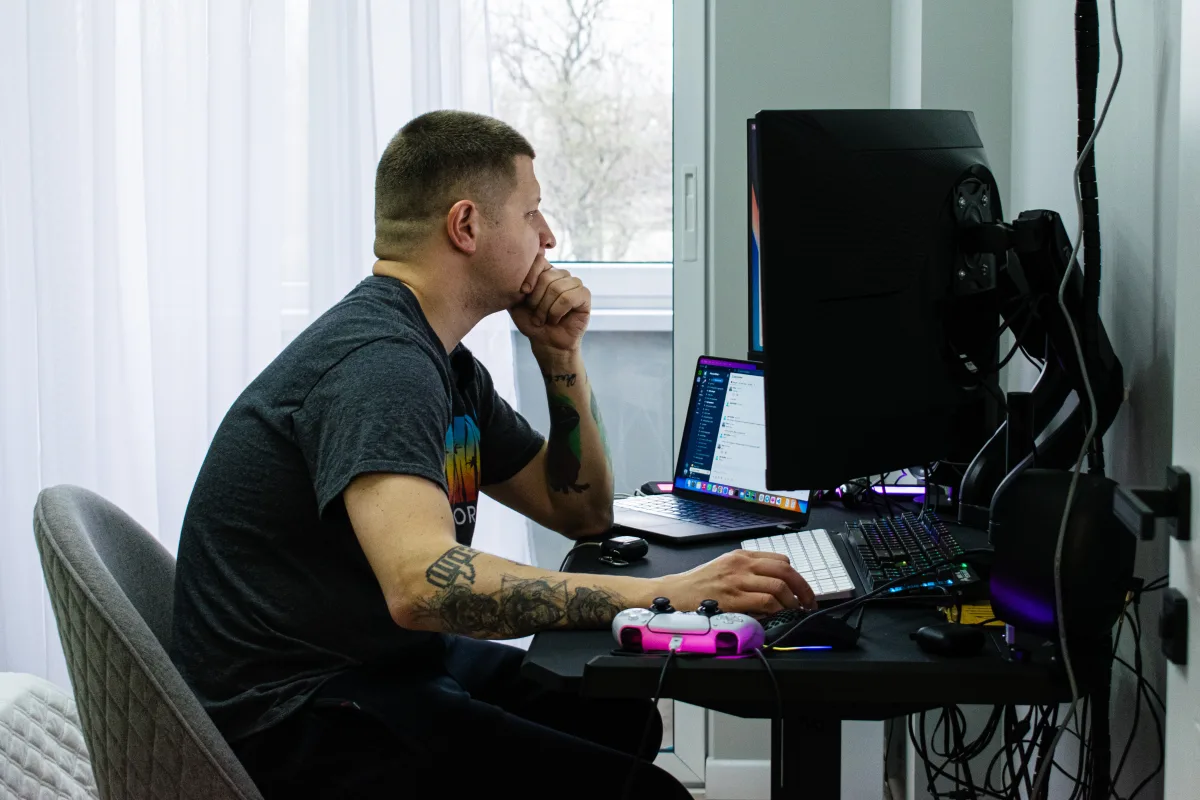Inside the headquarters of Moldova’s virtual IT Park, software engineer Volodymyr Ponomar is showing off his new certificate. Just weeks ago, he was tapping at his keyboard alone in his apartment, unsure whether opening a company made sense. Now, he’s the founder of Panama Labs, an officially registered business paying just seven per cent in taxes. He’s already hired his first employee. But no story starts this easily.
When freelancing stops working
Before Panama Labs and a single, seven per cent tax, and before he had a company at all, Ponomar just wanted to make his life simpler. Back in his motherland, Ukraine, he ran all his freelance contracts as a back-end engineer through a private entrepreneur license. That system gave him full control over invoices, taxes, and income. “I managed everything myself,” he says. “I paid taxes, filed reports, and converted money. I didn’t depend on anyone.”
In 2022, Ponomar was forced to leave Ukraine when Russia launched its full-scale attack. With his wife and kindergarten-age son, Ponomar left his home in Odesa, spent time in Spain, and eventually settled in Chișinău. In many ways, Moldova felt close. “Spain was too far. Moldova was familiar. Almost like home,” he recalls.
He kept working remotely for a US tech company, using his Ukrainian setup. But over time, capital controls tightened. Bank fees, spending limits, and restrictions on card use. Small things that turned into constant obstacles. “It was making my life harder,” he confesses. “I just wanted to get paid without hassle in the place where I live.”
Eventually, he found out about Moldova Innovation Technology Park (MITP). At first, it sounded vague. To better understand what it means to register an IT business in Moldova, Ponomar met a Moldovan lawyer and a co-founder of Bizonaire, Tudor Mardari at a creative hub, Artcor, in central Chișinău. “Most freelancers don’t think they need a company,” Tudor explains. “But the structure of MITP isn’t for side gigs. It’s for clean, export-facing activity. Real contracts, clear payments, and legal protection.”

Even though the idea of opening a company in a country he had just moved to felt excessive to Ponomar, Moldova’s special tax programme for IT companies is attractive. There’s only one, seven per cent tax on turnover, and nothing else.
Created in 2016, MITP is Moldova’s answer to making the tech sector globally competitive. It’s a virtual park with no buildings and no zones. Entrepreneurs can register their companies in a few weeks and get to work under a legal regime. The single tax replaces everything: income tax, payroll, employer contributions, local fees, property, and even road tax.
For example, if your company makes 10,000 euros in revenue, you pay 700 euros to the state. To qualify, at least 70 per cent of the company’s income must be derived from IT-related activities.
Mardari laid it all out for Ponomar to understand the registration process and noted that an accountant is a must. “On paper, it’s simple,” Tudor told him. “But if you don’t speak Romanian or know the local systems, not having an accountant will slow you down.”
At first, Ponomar was doubtful. “I wasn’t an entrepreneur,” he says. “I was just a coder.”
Five steps without guesswork
In many countries, obtaining certain official confirmations requires in-person visits. In Moldova, once these initial steps are completed, everything else moves forward digitally.
When Volodymyr Ponomar crossed the Moldovan border, the system automatically assigned him a personal ID that also works for his taxes. Ponomar needed to get a physical paper confirmation in-person in order to start his company under MITP. “The number already existed in the system. But without the printout, it didn’t count.”
Next came a digital signature used for everything from tax filings to business registrations. Ponomar got it within a few days. Then he registered his company: a Srl, the Moldovan version of a limited liability company. He named himself both founder and administrator. Opening a bank account followed.
The MITP platform required detailed company information: legal address, banking details, activity codes, and documentation. Ponomar uploaded everything, signed with his electronic key, and submitted the form.
A few days later, feedback arrived. Some fields were unclear, others were missing. He corrected them and resubmitted. “It wasn’t hard logically,” he says. “But the process had too many unknowns for me.”
He notes that his only mistake was not collaborating with a Moldovan assistant or accountant from the get go. If he would’ve done so, the whole application would have taken him not more than two weeks.
“Even if you have one client, you still need full reporting. The rules are strict because the system is clean,” Ponomar says. Eventually, he found a local accountant, sent them all his forms and login credentials. They fixed the formatting, clarified the codes, and double-checked everything before final submission.
That’s when the process started moving.
From coder to founder
A few weeks after resubmitting the final version of his MITP application, Ponomar got the confirmation: he was accepted. Officially a resident of Moldova’s IT Park. Now, he arrived at MITP’s headquarters to meet with the director, Marina Bzovîi.
Ponomar tells her that one thing wasn’t part of the plan.
As the system settled, he brought on a second person to help with backend work. Suddenly, it wasn’t just him. “Maybe that’s when it became a real company,” Ponomar says. “Now we’re two.”
His company, Panama Labs, provides backend engineering, architecture consulting, and technical leadership mostly for US clients.
Now, Ponomar can plan his future. He remembered his lifelong dream of having a restaurant. “It’s not a start-up idea,” he laughs. “But it’s something I’d love to try one day.”

“We’re aware of some blind spots. It’s something we’re actively improving both on the platform and in the onboarding process,” Bzovîi says.
Every MITP company must submit an annual verification of the company’s compliance conducted by a licensed firm. “I understand why it exists,” Ponomar says. “But I’m just one guy writing code. It felt unnecessary.” Still, he accepted the logic: it applied to everyone equally.
It’s the trade-off. A single audit per year that strengthens trust in even the smallest companies, and that concludes the bureaucracy for the founders. “We designed this model to offer both simplicity and integrity,” Bzovîi explains. “The principles are clear. You know what you owe, and you can plan your life around it.”
The clarity was what kept Ponomar interested and what won him over. In Ukraine, he says, the term ‘single tax’ came with hidden contributions. “You still had to pay for social insurance, medical insurance, and more. Here, it really is one tax. And it’s fair.”
“I used to think I was just a coder,” he smiles. “Now I think I’m actually a founder.”
Volodymyr Ponomar. Photo: Iurie Gandrabura.







